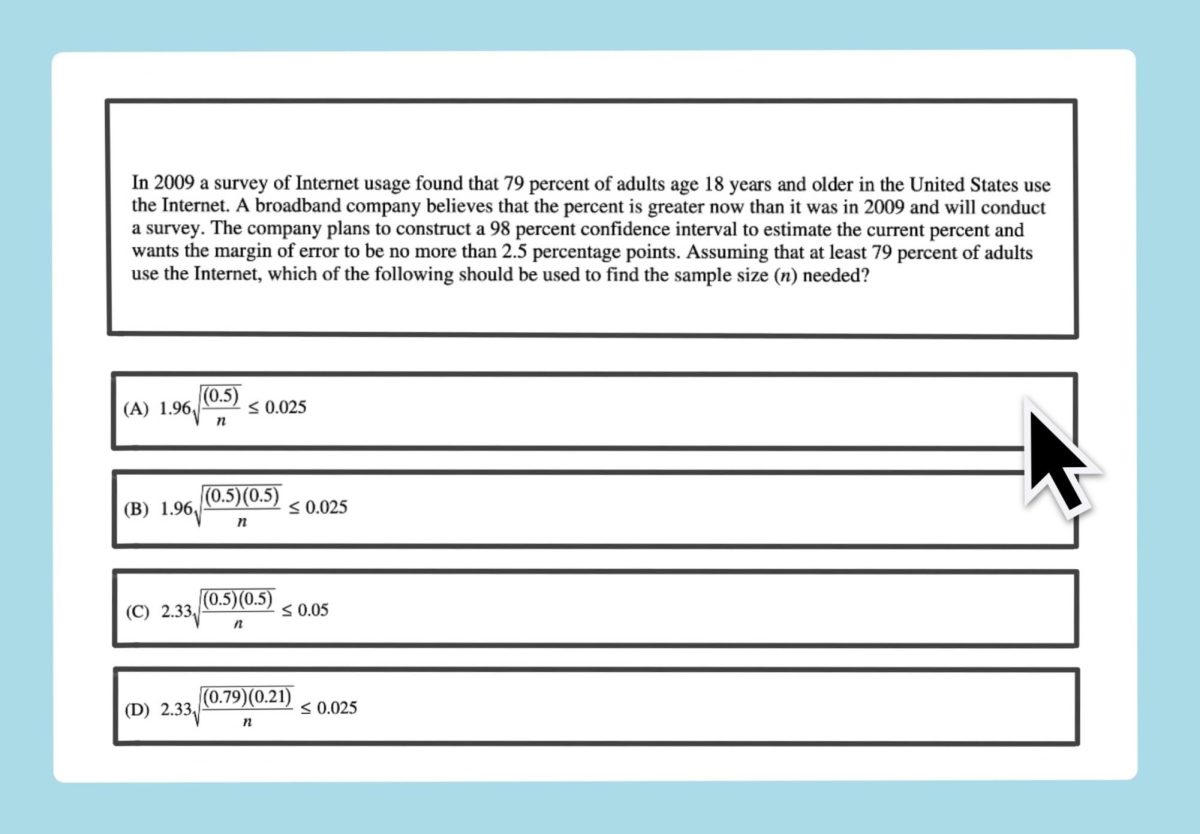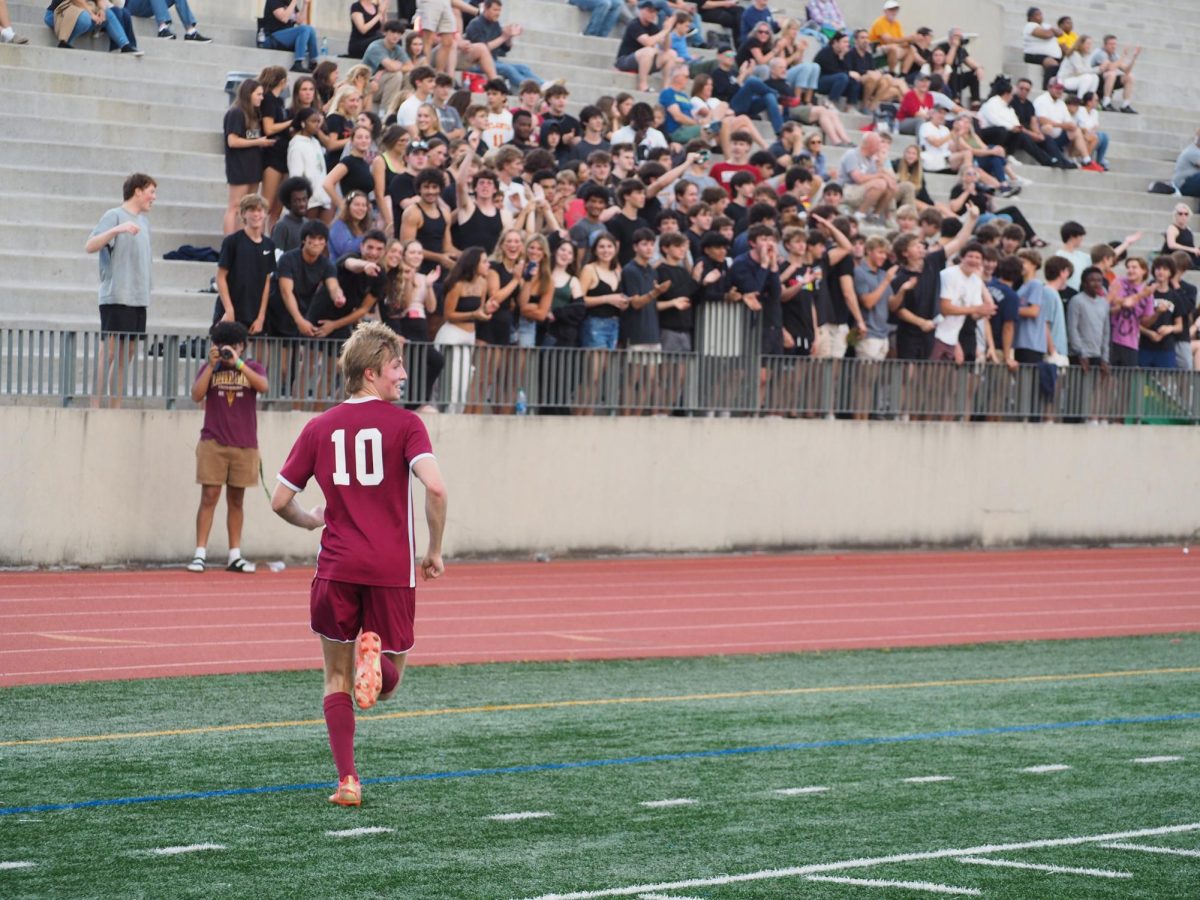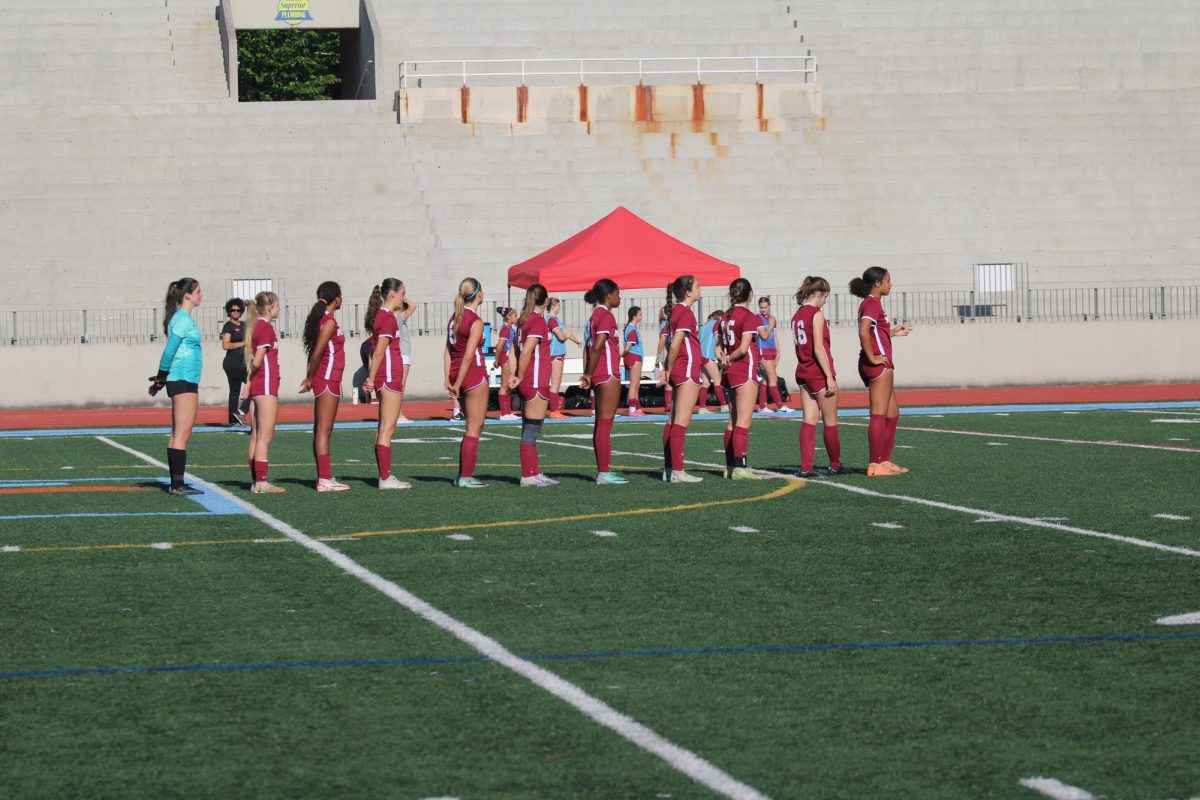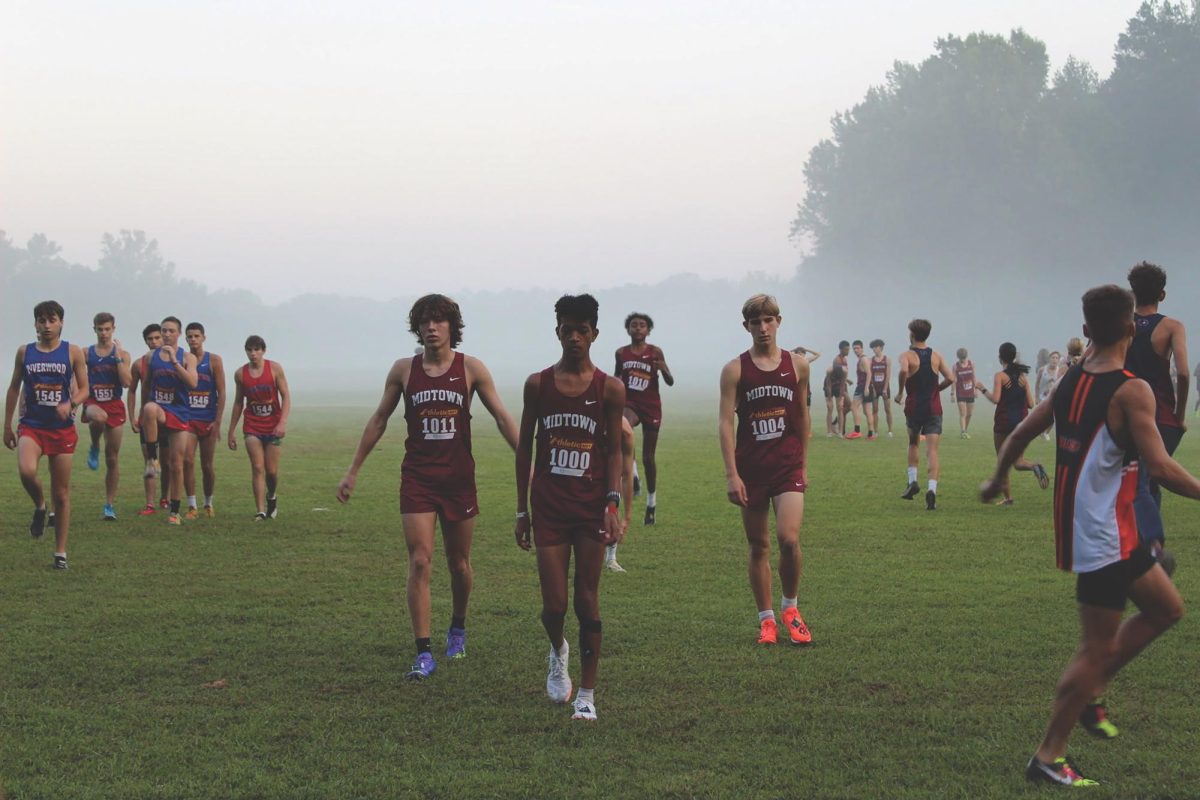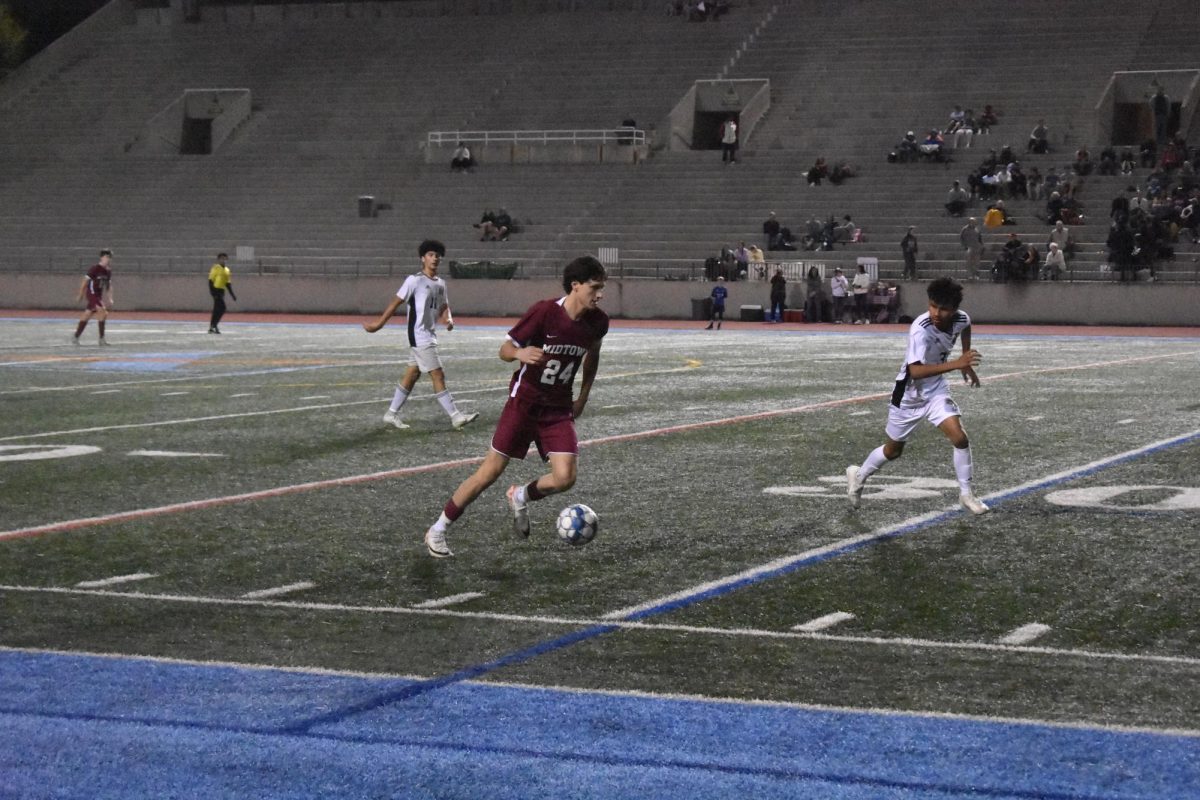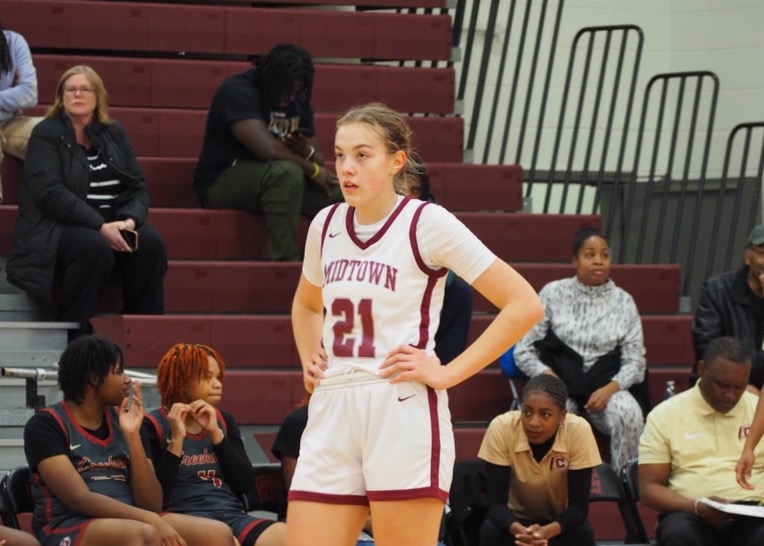In recent years, students who played two varsity sports for two or more years each were exempted from their third gym class. Grady students are required to take a health class, a personal fitness class, and a third class gym class, which can be weight training, introductory team sports, or introductory lifetime sports. However, because many students choose to apply themselves to only one sport, few students were actually able to use this policy.
As of last year, with the hiring of the athletic director, Myss Johnson-Jelks, the policy was reverted to the way it was before it was changed in 2012: Students who play one varsity sport for two or more years were exempt from the third required class. This change went unknown to most students.
“I’m slightly annoyed,” junior varsity soccer player Anna White said. “But [weight training] was kind of fun.”
Jelks has found many students have already taken the required classes.
“A lot of student athletes enjoy taking gym,” Jelks said.
According to Jelks, Grady was the only school in APS with a two-sport policy, and she’s never worked at a school with that type of requirement before. She believes reverting the policy back to only one varsity sport is more helpful to students and maintains the necessary fitness levels needed by high schoolers.
“I feel like if you’re playing sports and if you’re on the varsity level, you’re practicing and you’re conditioning and working out all the time,” Jelks said. “So, I feel like that’s a good substitution for a P.E. class.”
By changing it back, Jelks has noticed an increase in students using the policy to their advantage.
White took her third gym class during her freshman year before Jelks was hired and before Jelks returned the policy to its previous requirements.
Even though White thinks the policy is a way for non-athletic students who letter to get out of a class, she believes overall, it’s more helpful to busy athletes.
“I think it’s a good policy because this way it gets athletes out of a somewhat pointless class that they can fill with better ones,” White said.
Senior boys’ tennis captain Chase Masri, on the other hand, disagrees. He thinks students, regardless of their athletic participation should take all three classes.
“It’s good to have more exercise,” Masri said. “Our gym classes aren’t that hardcore.”
He thinks gym classes don’t push students past their limits and aren’t that big of a deal.
“You’re not really in the gym for more than 45 minutes before you dress back out,” Masri said. “I don’t think it’s a big deal because it’s just an extra gym class.”
Masri believes some students might take advantage of the one sport policy.
“It’s better because depending on your sport, maybe you’re not really playing,” Masri said. “Like maybe you’re getting credit, but you’re not starting games or you’re not going to practices.”
Cross country coach Jeff Cramer shares the same sentiment.
“Don’t sign up for a sport if your only motivation is to exempt P.E.,” Cramer said. “I have removed runners from my teams when I doubted their commitment, or refused to sign the waiver form when it was presented to me.”
Jelks believes as long as the policy doesn’t allow students to skip out on a health class, it’s helpful the way it is.
“From what I have seen of the rec games classes over the last 20 years, two years of participation in a varsity sport is a much more meaningful and more physically demanding experience than the class,” Cramer said.
The reverted policy allows for students to specialize in a sport instead of spreading their time over multiple sports. This leaves open the possibility of a drop in student participation.
“Even though [the policy] has changed, it probably won’t discourage most legitimate athletes,” White said.


